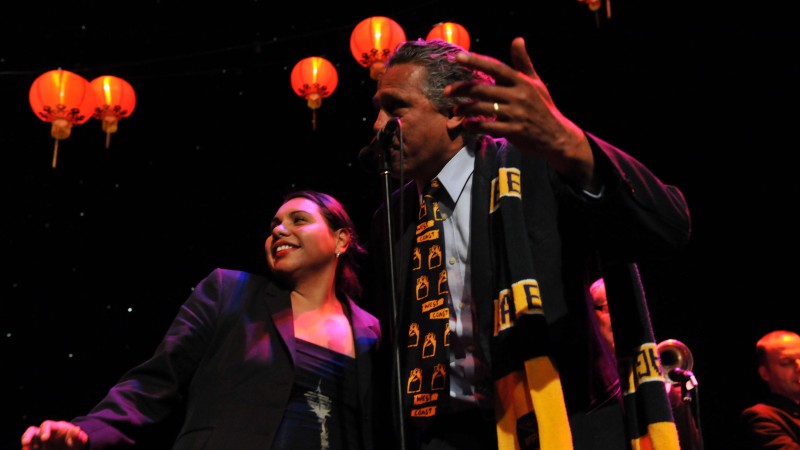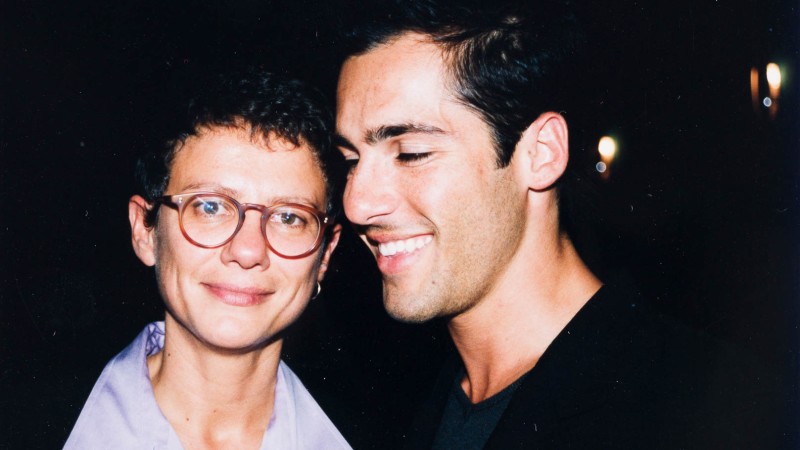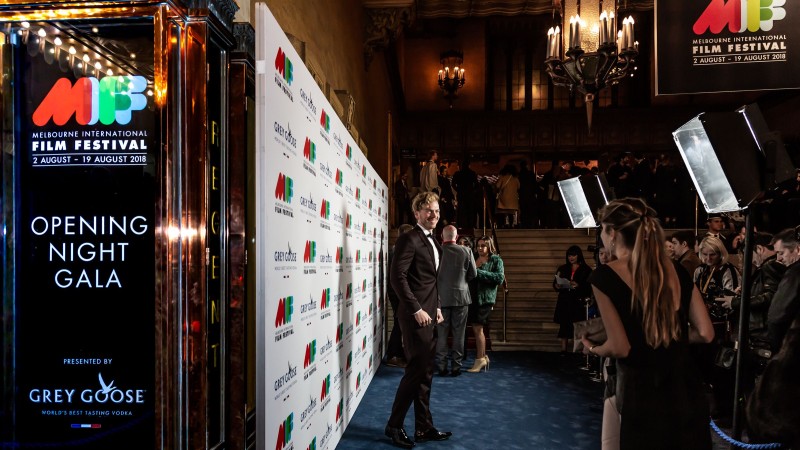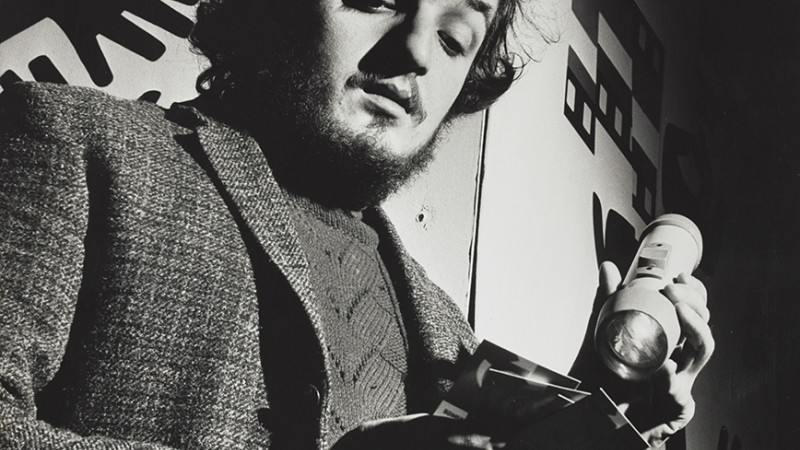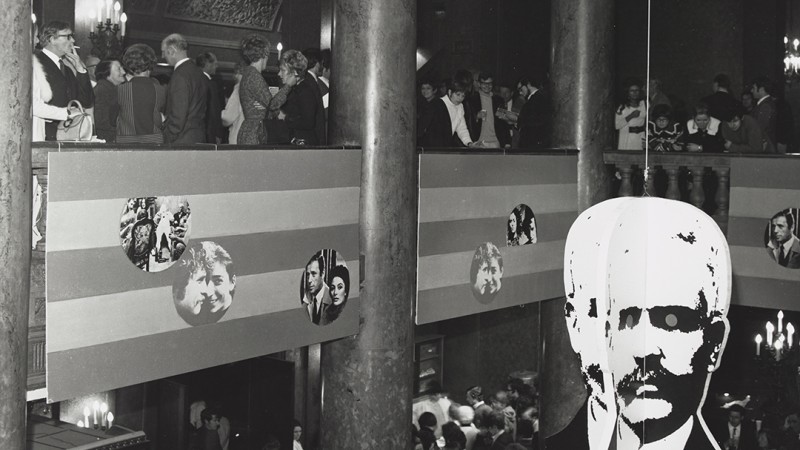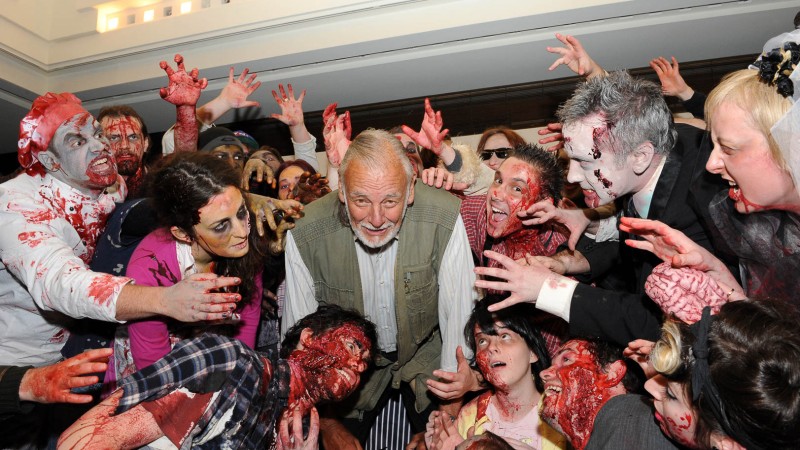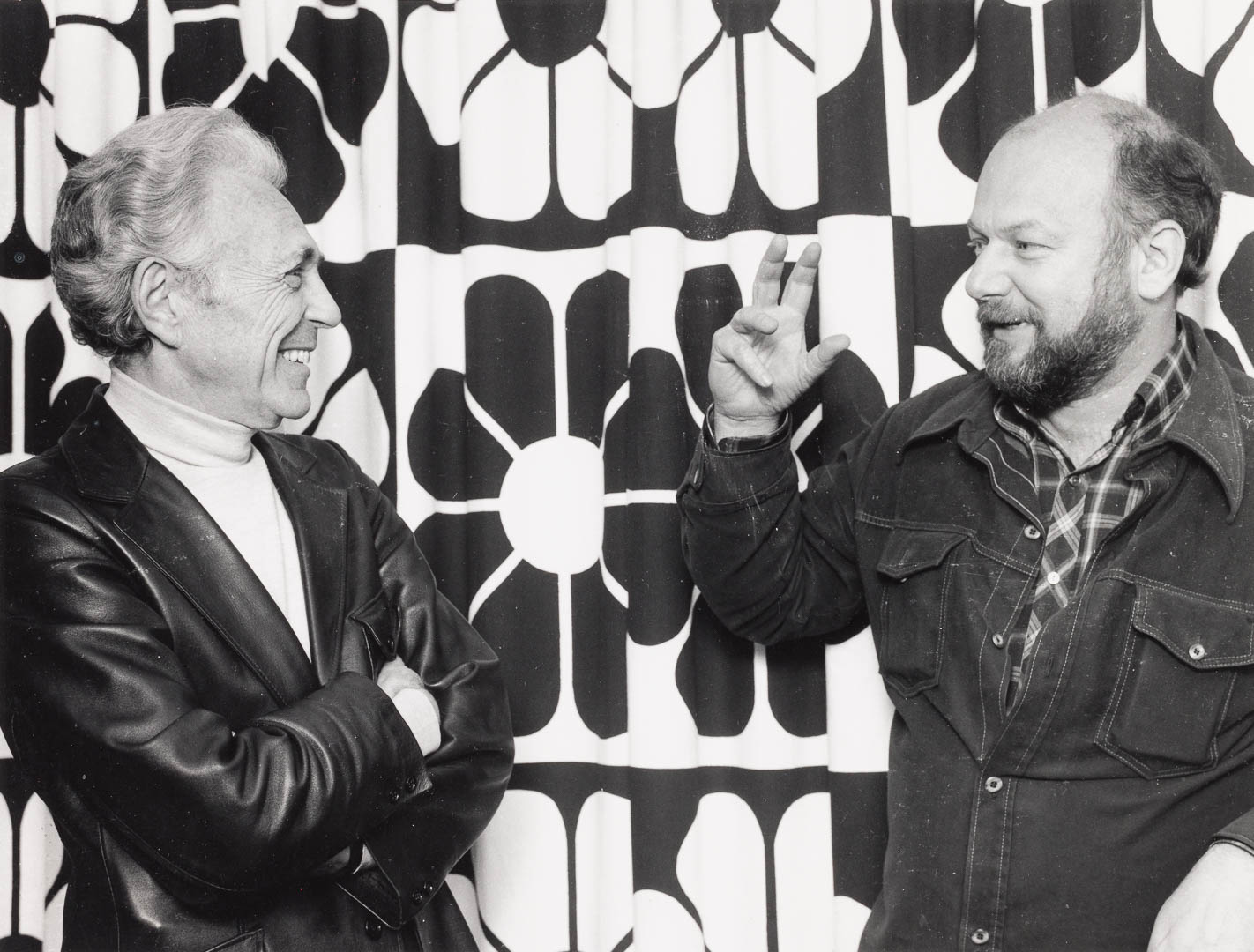

You Had to Be There
The thrill of the festival happens in a moment. In the shared moments created in being present at the festival, and in sharing experiences with others in the MIFF community. These moments are the instances that set the festival apart from the everyday, that remind us that we live in the present, and that some experiences are just too unique to replicate.
Each year, we return to the festival to capture these moments and gather our stories. For some the draw is opening night: the gala event that launches the festival, celebrating the start of a new feast of cinema and the opportunity to reconnect with old friends. For others it is the chance to explore new worlds, to experience the wonders of the screen and become immersed in stories and experiences from both near and far. For yet others, it is the uncertainty of the live event, the ever-present possibility that something unexpected might just happen that draws them in.
“There’s only one Melbourne International Film Festival”
All of these moments create the festival’s buzz – that murmur in queues, the messages that fill our digital threads, the overheard conversations in the city’s bars and restaurants: all of it saying ‘were you at MIFF?’ You had to be there.
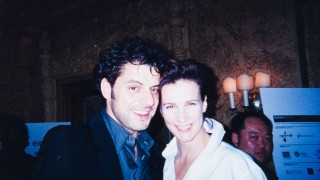
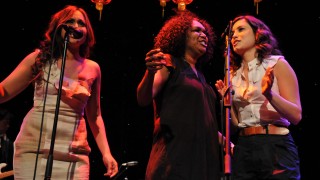
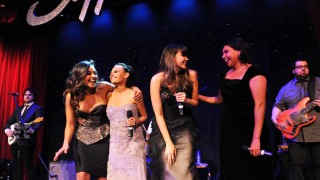
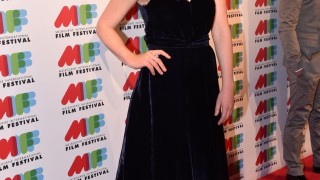
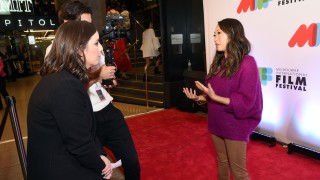
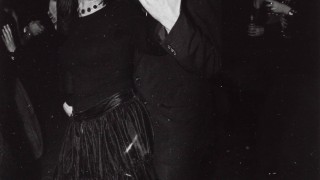
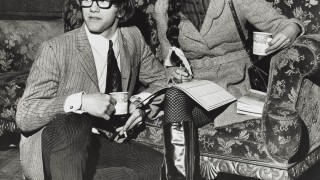
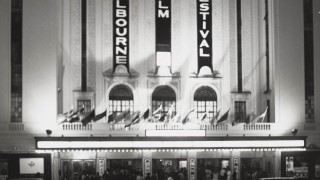
Opening nights and memorable events
No two screenings at MIFF are quite the same. Each presentation of a film holds the chance for a new audience, a new reaction, a new experience. But for some screenings and events, the experience is even more special, elevated by the sense of occasion, the unrepeatable mix of guests, moving images and that intangible atmosphere that festivals create.
Opening and closing nights stand out within the annals of MIFF’s most memorable moments. At these galas, the lucky few gather to celebrate cinematic works of particular distinction. The red-carpet guests, the flowing champagne – and the equally flowing speeches – set these occasions apart and cement them in the memories of those who attend. Whether it was seeing The Sapphires screen for the first time, building connections with other filmmakers, or simply sharing the thrill of the moment, these events stand out.
Then there are the premiere films and the short film awards. Those screenings of Australian films, with filmmakers sitting nervously in the cinema listening to their audience – or sneaking out the side door to avoid them – before returning to answer questions and share their stories.
Whether loved or hated, these films are cause for celebration. Being part of these occasions, audiences know that they are in the thick of the festival, seeing something unique, up onscreen for the first time in the city, in the country, or even the world.
“My first memory is living in St Kilda, in Robe Street, and going to the opening night down at the Palais. I can’t remember what the opening night film was, but I borrowed a dress, and it was too big for me. Everybody was really dressed up in these sort of lacy, black, flouncy numbers, and I spent the entire night trying to keep this dress on, and dancing with this huge crowd of almost total strangers at the opening night of the Melbourne Film Festival.”
“The other memory that comes to mind is the opening nights of MIFF in the 80s, when I started to become involved in the film industry. At times it was hard to get a ticket to the opening night and they would sell out. And I remember one year I was unhappy because I wasn’t able to get the tickets [but] I realised that they were screening the people without the opening night ticket first and then they were ushering everyone out. Then they were going to ask the other people in and they were going to get to the party. So I hid in the toilets until everyone left and then I came out to the party! As a filmmaker, that opening night was important. It was an important time to catch up with a lot of people all in the same place.”
“I got to go to opening night and see my film [Afterlife Bar] on the big screen and everyone’s reaction for the first time. It was a crazy experience. I brought my mum and dad, which was nice. It was the premiere of the Adam Goodes documentary, The Australian Dream, so all these football players were there. And my dad’s a massive football fan so he was freaking out a bit. I was like, calm yourself!
It was really cool, seeing it play for the first time. I was kind of just looking around silently to see what people’s reactions were because no one knew that I made it. Just seeing people giggle a bit and laugh, I was like: that’s good, I’m happy with that reaction. That opening night was a lot of fun, [with a] really exciting atmosphere, which was really cool.”
Watching films, seeing the world
There is something transformative about the power of cinema. It has the power to open your eyes, to transport you around the globe, and to change your view on the worlds you inhabit.
This is the vision of cinema that inspired the film society movement in Australia and ultimately gave birth to MIFF in 1952. The pioneers of MIFF celebrated the power of cinema and seeing the potential for film exhibition to inspire and change film audiences for the better. As former MIFF technical director Gerry Harant once wrote on the occasion of MIFF’s 50th anniversary, the rise of film societies and their festival offered a protest movement “against the misuse of what we perceived as a valuable medium”.
The value of film lies in its ability to transcend the cinema space. In bringing the world’s films to Melbourne, MIFF has – across its more than 70-year history – connected Australia to world and to the many different stories and experiences that fill it.
For many, being at MIFF becomes synonymous with travelling the world, experiencing new places and cultures, and sharing in the stories that give meaning to life.
“MIFF was like a big celebration, you know. Going to the film festival and all that meant in terms of socialising, eating out down at Acland Street, all the wonderful Jewish food. It was sort of like a whole package of celebration that gave me windows into other worlds, other cultures, other states of being; and it was a real eye opener for someone in their late teenage years.
Melbourne at the time, I have to say it was a pretty dreary place. My memories of Melbourne in the 60s and 70s [is that it] was very parochial. It wasn’t the fabulously vibrant multicultural city it is today. It was a city asleep, in my view, and the Melbourne Film Festival was a real opportunity to open up the world, see other cultures, experience other languages, hang out in St Kilda, hang out with all the Jewish population of St Kilda. A lot of the festival-going audience were postwar Jewish refugees who were coming to see Polish cinema or Hungarian cinema. And the film festival was virtually the only place in the early 70s where you could see those sorts of films.”
“For me, it’s not an alternate world. It is the world. It’s like stepping into the core of the world. It’s not parallel. It’s what the world surrounds. It’s the center. For me, it’s a place of stories. The term visual library doesn’t describe it because it is stepping into other worlds and other cultures. You get to see films that you just can’t see anyplace else. Sure, you can find things online… But cinema and MIFF particularly gives you a chance to lead with your heart. And I guess that’s the thing for me that not only makes it special, but fits with my understanding of the world.”
“The thing I always love about MIFF is, and the things I remember, are the films that you pick that are a bit of left of center. Those are the ones that stay with you for a really long time. There was one recently actually, I think it was at the online festival last year, which was about street dancing in a certain part of the States. I thought: I like dancing, it might be interesting. And it just completely opened up a new world. That’s the thing, I think, that I love most about the festival: it can be anything that you want it to be. It can be pure entertainment. But for me, there’s a sense of escapism as well, of being able to explore other worlds. And it’s really informative and educational, too.”
When the unexpected happens
The screenings at MIFF are a wonder to experience, but sometimes things don’t always go to plan. And this can make the occasion even more memorable for those in the room. Both good and bad, surprises are part of the thrill of the live event.
There are the good surprises – the unexpectedly great films, the unscripted comments and intriguing insights offered up by festival guests, the meeting of new friends, or the blooming of new romances. There is the thrill of discovery, both from audiences and by filmmakers or festival programmers who discover something new about their films and the people who watch them.
There are also the not-so-good surprises. The unplanned and visceral reactions to films that see emergency services called to attend audience members! The technical malfunctions which bemuse and distract audiences as they watch their films. Those rare occasions when a film has arrived un-subtitled, posing a challenge to audiences seeking to follow the narrative.
Whether enjoyed or not, the prospect of catching that unplanned moment, of sharing in the wonder of the unexpected, is all part of the festival experience. To know the whole story, well, you had to be there.
